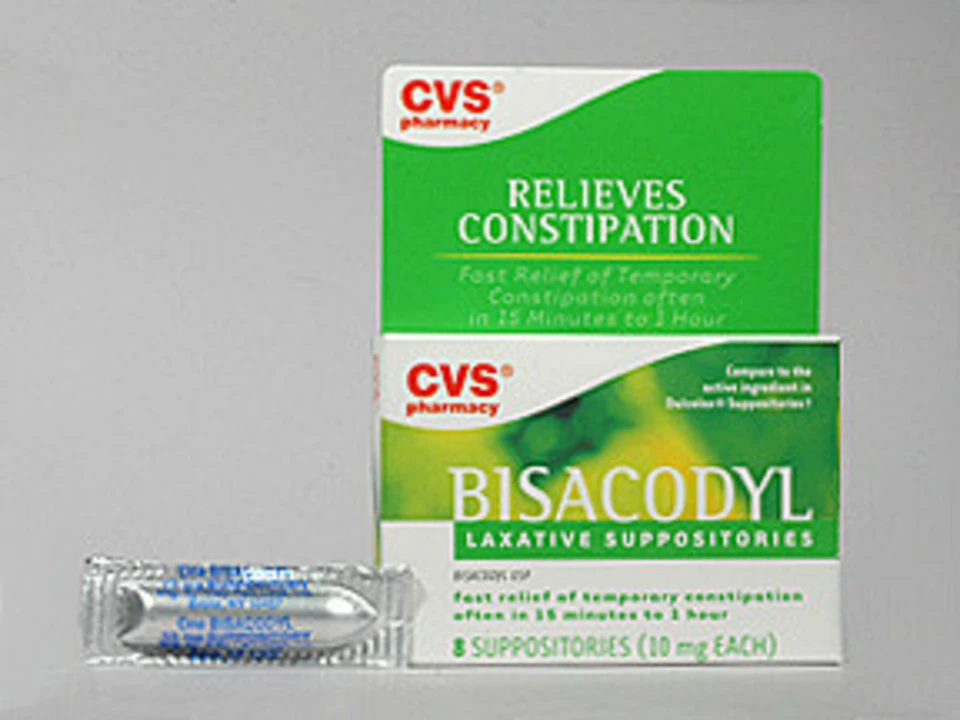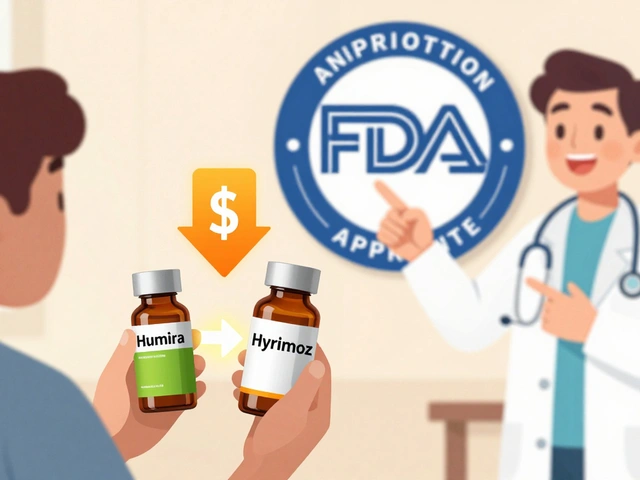Bisacodyl: What It Does and How to Use It Safely
Bisacodyl is a stimulant laxative you can use for short-term relief of constipation. It works by speeding up bowel movements, making stools easier to pass. People reach for bisacodyl when they need a predictable, effective option—for example, before travel, after a short bout of constipation, or to clear the bowels before a procedure.
How to take bisacodyl
There are two common forms: swallowable tablets (enteric-coated) and rectal suppositories. For adults, typical tablet doses are 5–15 mg once, usually at bedtime because tablets often take 6–12 hours to work. Suppositories (usually 10 mg) act faster—expect results in 15–60 minutes.
Don’t chew or crush enteric-coated tablets—doing so can irritate your stomach. Also avoid taking tablets with milk, antacids, or dairy within an hour; those can damage the coating and speed release too soon. If you miss a dose, don’t double up the next time. For children, follow the product label or ask a pharmacist or doctor for the right dose by age.
What to watch for (side effects and risks)
Common side effects are cramping, gas, and loose stools. These often pass once your bowel empties. If you get severe abdominal pain, persistent vomiting, fever, or bloody stools, stop using it and seek medical help—those signs might mean something more serious like a blockage or infection.
Do not use bisacodyl regularly for long-term constipation. Daily stimulant laxative use can cause dependence, weaken bowel function, and lead to electrolyte imbalances (low potassium, for example). If constipation lasts more than one week or happens often, talk to your doctor about underlying causes and safer long-term options.
Also check interactions: some medications and supplements affect electrolytes or bowel tone. If you’re on heart meds, diuretics, or have kidney disease, ask your doctor before using bisacodyl.
Simple steps reduce the need for laxatives: eat more fiber (fruits, veggies, whole grains), drink enough water, and move your body daily. Those habits often fix mild constipation without medicine.
If you buy bisacodyl online, use licensed pharmacies, read product labels, and avoid sites that pressure you to buy large quantities or sell unfamiliar brands cheaply. In many places bisacodyl is OTC, but rules vary—check local regulations.
When to call a doctor: severe belly pain, vomiting, fever, rectal bleeding, no bowel movement after using a suppository, or constipation lasting more than seven days despite treatment. Also check in if you’re pregnant, breastfeeding, or treating a child—get professional advice first.
Short-term, bisacodyl is a reliable tool for clearing constipation. Use the right form and dose, follow safety tips, and seek help if anything feels off.
As a copywriter, I've recently come across the topic of Bisacodyl use in geriatric care. Bisacodyl is a medication commonly prescribed to older adults to treat constipation. It works by stimulating the bowel muscles, helping to promote regular bowel movements. This can be especially important for the elderly, as constipation may lead to more serious health issues if left untreated. Overall, Bisacodyl seems to be a valuable tool in maintaining the digestive health of our aging population.
View Details

